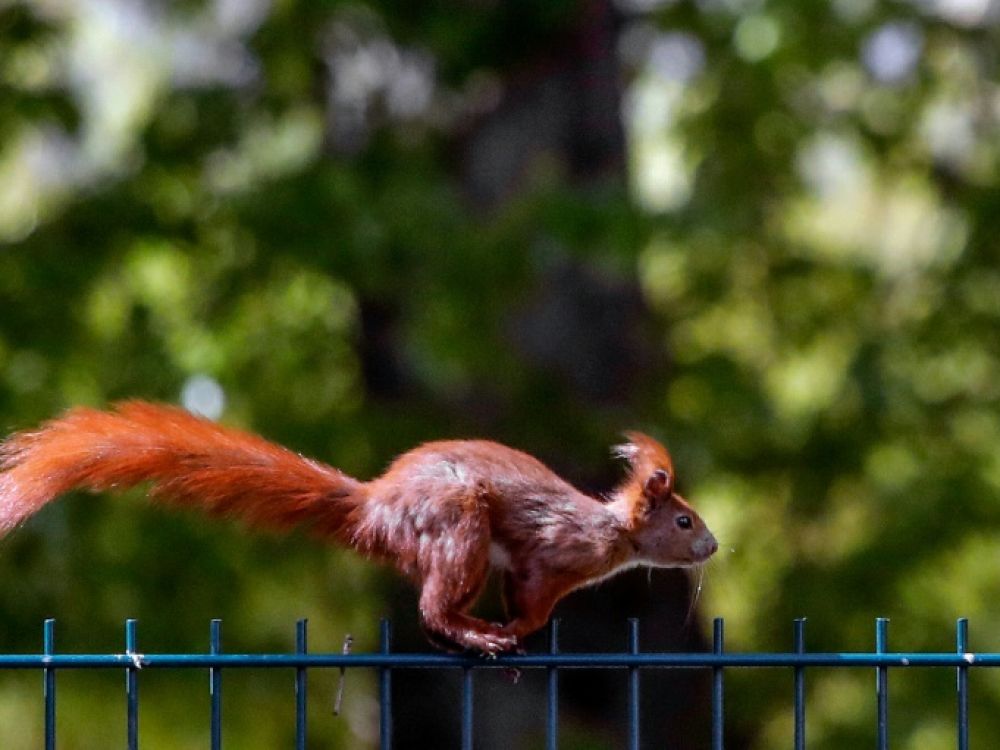
Acrobats and squirrels use parkour to get around (study)
Squirrels’ acrobatic leaps rely on complex split-second calculations, and these rodents develop surprising strategies, sometimes similar to those used in the urban discipline of parkour, according to a new study published Thursday in the prestigious journal Science.
Scientists at the University of California, Berkeley, have built custom obstacle courses to better understand how squirrels adjust their movements in flight to avoid fatal falls.
They hope this research will one day help develop more agile robots.
“Squirrels have a combination of characteristics that make them so interesting: on the one hand, their acrobatic nature, their biological mechanisms and their strong muscles, which can be used for leaps several times their body size,” said Nathan Hunt. , lead author of the study, explained to AFP.
“On the other hand, their cognitive abilities. They have a very good memory, are very creative and are very good at finding solutions to problems,” he added.
The research team used peanuts to lure them in. Perches are set up to mimic tree branches, forcing animals to jump varying distances to get their reward.
The scientists wanted to note how squirrels make their decisions when faced with a difficult trade-off: approaching the edge of the roosts reduced the distance to jump but harmed their stability, while reducing the thrust they could use, since the platform was at the time. unstable.
As a result, squirrels preferred to rise from the base of the perch, especially when the “branches” are less rigid. The flexibility of the roosts turned out to be six times more important in making a decision than the distance to be covered.
No squirrels fell during the experiment, thanks to the various strategies – and their sharp claws.
The most surprising innovation: for the most difficult jumps, instead of shooting directly at the target, the squirrels used the sidewall as a “bounce” stage, thus apparently using the parkour technique, a discipline popularized by the Yamakase in France in the 1990s.
When raptors chase squirrels, their flight can be played from a few inches away, which is likely the reason for their agility, according to Nathan Hunt.
“It’s funny that this study was published, because people often see squirrels in their gardens,” he says. And he himself could not help but have other ideas of experiences by observing them, he admits.

“Organizer. Social media geek. General communicator. Bacon scholar. Proud pop culture trailblazer.”
